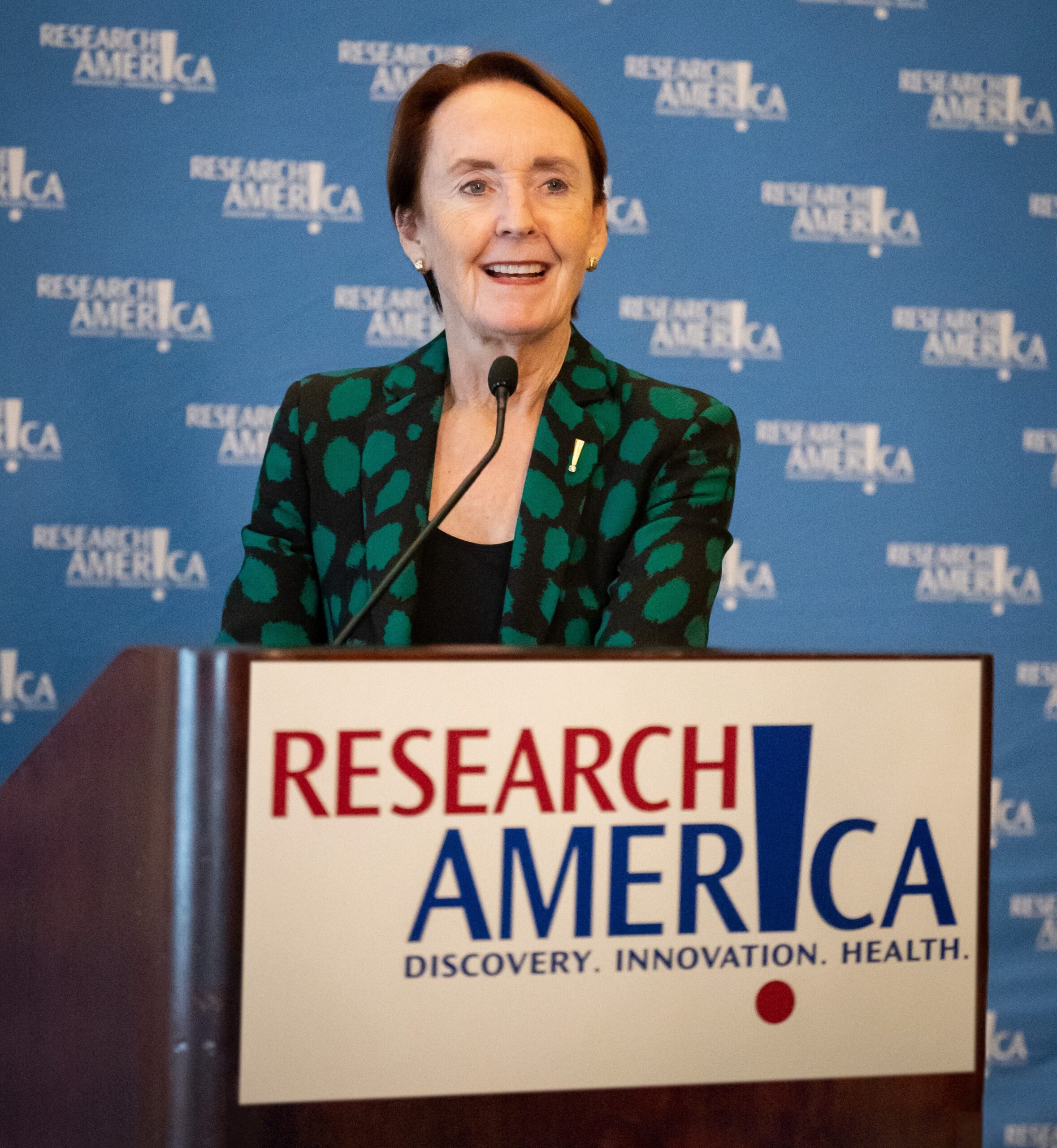Priceless Advice, Precarious Times

Policy, advocacy, and communications legend Bill Novelli (he’s also humble and may chastise me for what is a completely appropriate description) and I participated yesterday in an alliance discussion exploring the art and science of advocacy. “Why do it?” “How do you do it right?” “How do you do it wrong?” “How do you measure success?” “What makes science advocacy hard?” “What makes it easy?” In case you missed it, watch now. Which brings me to an advocacy imperative…
On the Hill: Just days before Congress goes into its August recess, the House and Senate have both focused on “Labor-H” appropriations legislation, which includes funding for NIH, CDC, ARPA-H, BARDA, AHRQ, and other key health agencies. The House Appropriations Committee planned to mark up its Labor-H bill today, but canceled – reportedly due to the desire of some members to cut funding even more deeply and attach additional policy riders to the bill. Recall that the current House Labor-H bill already severely underfunds NIH and our nation’s other research and public health agencies (see our press statement).
As I write, the Senate Appropriations Committee is considering its version of the Labor-H bill. While all the details haven’t been released, we do know that NIH would receive an increase over Fiscal Year 2023 funding levels and ARPA-H would be flat-funded. Both are a significant improvement over the funding levels proposed in the current House draft. We will share more details about the Senate bill when they become available.
Clearly the appropriations process remains in flux. If there is any silver lining to the shifting dynamics, it is that advocates can still influence final funding numbers to prevent the House funding cuts from coming to fruition. It will not be easy, but it can be done. Next week’s letter will focus on advocacy actions.
Also On the Hill: The fall is bound to bring more debate in Congress around prescription drug affordability. One proposal likely to get airtime involves attaching “reasonable pricing” requirements to the federal technology transfer process.
Some members of Congress have asserted that under the 1980 Bayh-Dole Act, NIH and other research agencies have the right to rescind the patent rights of companies that have been part of a tech transfer process if those companies’ end products are not “reasonably priced.” Other current and former members, including the law’s authors (the late Senators Birch Bayh and Bob Dole), have denied this assertion, arguing that invoking “reasonable pricing” is a misinterpretation of the law.
Prescription drug affordability, as part of healthcare affordability overall, is a critically important challenge that must be confronted, but entangling tech transfer in the drug pricing debate will undercut tech transfer itself, setting medical progress back at the expense of us all.
NIH Tech Transfer Workshop: To better understand the importance of tech transfer, on Monday, July 31, starting at 9 a.m. ET, join the NIH for a free, day-long virtual workshop, “Transforming Discoveries into Products: Maximizing NIH’s Levers to Catalyze Technology Transfer.” Topics will include how the NIH chooses what to patent and license; how it identifies and evaluates licensees; how it negotiates terms; and the role of NIH in the broader biomedical research innovation ecosystem, with perspectives from both the public and private sectors. View the agenda to see panel times and speakers.
We encourage you to view and share two Research!America infographics that help connect the dots between the landmark Bayh-Dole Act, tech transfer, and the multi-sector process that drives medical progress. This Information, Technology, and Innovation Foundation report on the Bayh-Dole Act provides even more context.
Forum Registration Open: We’re gearing up for our fall signature event! Registration opened yesterday for the 2023 National Health Research Forum, September 19 and 20. The Forum is free and open to all, and features discussions with top federal officials, research leaders, and distinguished national media to explore health and R&D-related issues vital to the well-being of our nation, our economy, and patients in the U.S. and across the globe.
- Day 1 (Sept. 19) will be fully virtual, from 9:30 a.m. to 6 p.m. ET.
- Day 2 (Sept. 20) will be in-person only in Washington, DC, from 1:30 to 5:30 p.m., followed by a networking reception from 5:30 to 7 p.m.
Keep an eye on this space as we announce speakers who will cover such topics as: artificial intelligence and drug development, combating misinformation, pandemic preparedness, and more.
Upcoming Alliance Discussion: Join us on Wednesday, August 2, at 11 a.m. ET for a conversation with Jon R. Lorsch, PhD, Director of the National Institute of General Medical Sciences at NIH. We’ve asked Dr. Lorsch to provide an update on the Institute’s role in bringing about more sustainable and inclusive career paths for early career researchers across research and engineering disciplines. Please bring your questions and insights!




